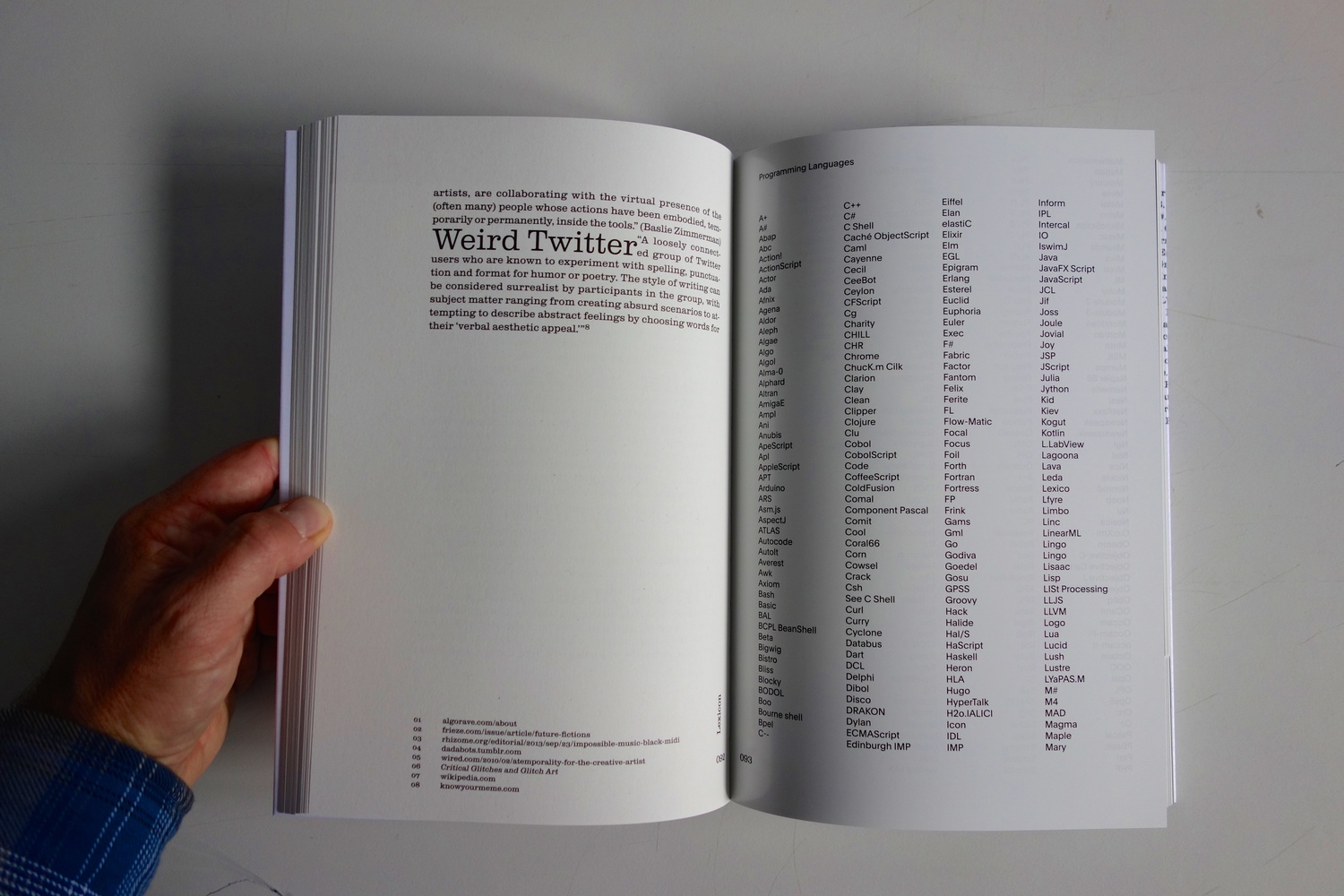DADABOT. The role of algorithms in cultural production
[image] http://www.nicolasnova.net/pasta-and-vinegar/2015/10/7/new-book-dadabot
Nicolas Nova sees dada in big data
Essay about the hybridization of cultural forms (music, visual arts, literature) produced by digital technologies.
The notion of creolization, proposed by linguists, anthropologists and writers, correspond to the hybridization of cultural elements which lead to original forms. The increasing use of digital technologies in everyday culture (video games, electronic music, new media art, literature, visual art) add a new layer of complexity. Machines indeed play a specific role in this sort of hybridization, as attested by the use of samples, presets, sound effects in electronic music, generative art and glitches in visual arts, or the importance of Web mash-up and humoristic Twitter bots. DADABOT focuses on this “algorithmic turn” in contemporary culture and describe it through several components: interviews with artists, experiments with digital technologies, a lexicons and an essay that address the implications of such changes. https://www.idpureshop.ch/web/catalogue.aspx?cat=62
Includes works by:
Diego Collado, Data recovery, 2010–2014
Diego Collado hunted for used digital memory cards of phones and cameras. Then, with the help of a Data Recovery software, the artist started to recompose what could be rescued from the images erased. The digital traces of personal moments from the past are thus reinterpreted by the software.
Daily Dot headline about !Mediengruppe Bitnik‘s The Random Darknet Shopper (via) /: The Random Darknet Shopper is an automated online shopping bot which we provide with a budget of $100 in Bitcoins per week. Once a week the bot goes shopping in the deep web where it randomly chooses and purchases one item and has it mailed directly to the exhibition space. Once the items arrive they are unpacked and displayed, each new object adding to a landscape of traded goods from the Darknet.

Marion Balac, Anonymous Gods
Scouring through Google Street View, Marion Balac realized that the algorithms of the mapping service had anthropomorphized and accidentally blurred out the face of the statues of deities that its car had encountered along the road.
retrieved from : DADABOT. The role of algorithms in cultural production – We Make Money Not Art


